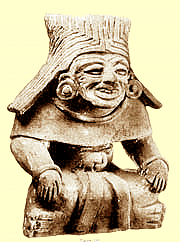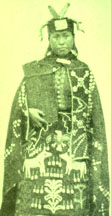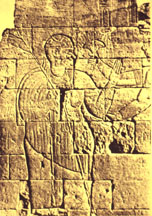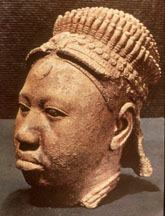
Baranamtarra
Hatshepsut
Puduhepa
Kandake Amanitore
Himiko
Boudicca
the Trung Sisters
Dahia al-Kahina
Lubluban
Makeda-be
Tomyris
Ruwej
Sondok of Silla
Lakkadevi
Judith the Fire
Mama Huaco
Abla Pokou
Nanyehi
María Candelaria
Cécile Fatiman
Gabriella Silang
Sarrouania of Azna
Maria Stewart
the Rani of Jhansi
Louise Michel
Lozen
Nehanda Nyakasikana
Qiu Chin
Niuta Teilelboim
Lillian Ngoya
Political Leaders
Amanitore, one of the powerful line of Nubian queens known as Kandakes (the name Candace commemorates them). They co-ruled the Meroitic empire of northern Sudan with their brothers (not their husbands), a trait of matrilineal societies. They were buried with rich treasure in their own pyramids. Ancient reliefs show them prevailing in battle, and the Romans reported that one of the Kandakes lost her eye fighting against the legions.

This photograph labelled "Kwakiutl Chieftainess" was taken about a hundred years ago and published in a U.S. Ethnology Bureau Bulletin. It is typical of colonial government documents that no name is recorded, nor any other identifying information. Yet the very presence of this woman exudes authority, and her robes and headdress show a spiritual as well as political dimension to her power.
This magnificent queen's head is one of many female portraits found among the classic Yoruba sculptures buried at Ile-Ifé, Nigeria. Royal women exerted considerable power in west Africa. Some, like queen Amina of Zaria, ruled in their own right. The queen mothers often chose the next king, acted as counselors, and in some cases had their own judicial courts, officers and warriors. More than one of these queens deposed their own sons.
"You know that in our country [Guinée-Bissau] there were even matriarchal societies where women were the most important element. On the Bijagos Islands they had queens. They were not queens because they were the daughters of kings.They had queens succeeding queens. The religious leaders were women too..."
- - Amilcar Cabral, Return to the Source: Selected Speeches (1973)

